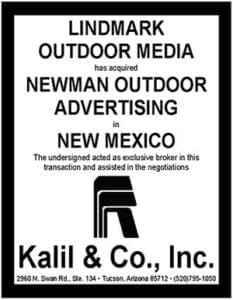 By Kerry Yoakum, OAAA
By Kerry Yoakum, OAAA
Legal challenges to billboard controls were filed in four states, prompted by a 2015 Supreme Court ruling that bolstered free speech protections.
Two of those four cases recently have been dismissed, in Rhode Island and Georgia.
In late January, the Rhode Island case (Rhode Island DOT v. Jeff Anthony Properties, Inc) was dismissed when the sign owner agreed to remove the signs. The Georgia case (Carey Travel, LLC v. Georgia DOT) was dismissed because the sign owner failed to exhaust administrative remedies prior to filing the lawsuit. The sign owner will likely request an administrative hearing to restart this challenge.

In 2015, a unanimous US Supreme Court struck down a local sign ordinance in Arizona, ruling that signs should not be regulated based on content (Reed v. Town of Gilbert). The Reed case prompted challenges to state billboard controls, on grounds that various types of signs are treated differently.
Dismissal of legal challenges in Rhode Island and Georgia means the spotlight is on remaining cases in Texas and Tennessee.
The Tennessee case (Thomas v. Schroer) challenging the state’s billboard law is in federal court in Memphis. The Outdoor Advertising Association of Tennessee (OAAT) filed an amicus brief in support of the Tennessee Department of Transportation’s position that billboard controls do not impede free speech.
After this case was argued, the jury recommended to the judge that Tennessee’s billboard law should be upheld. A ruling from the judge is expected soon; this case may advance to the federal appeals court.
In Texas (Auspro Enterprises v. Texas DOT), a state appellate court knocked out key sections of the Texas billboard law, citing the Reed case. The plaintiff argued that Texas’ statute regulates temporary political signs based on content.
The state has appealed to the Texas Supreme Court.
(Kerry Yoakum, an attorney, is Vice President of Government Affairs at the Outdoor Advertising Association of America.
[wpforms id=”9787″]
Paid Advertisement

















